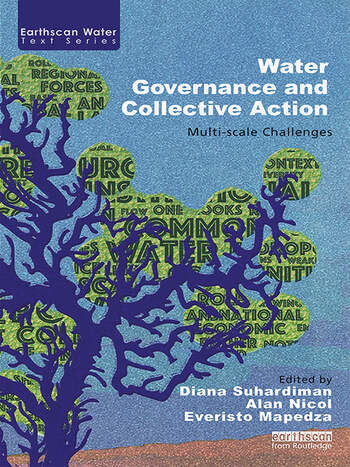Politics of knowledge, collective action and community empowerment in Health Impact Assessment in Thailand: The case of Khao Hinsorn
Publication date: September 2017
Publication: Water Governance and Collective Action: Multi-scale ChallengesAuthors: Carl Middleton,
Somporn Pengkam, and Areeya TivasuradejEditors: Diana Suhardiman, Alan Nicol, and Everisto Mapedza
Impact assessment tools for water governance, such as environmental impact assessments, are arenas of contested knowledge production. Over the past decade, the effectiveness of impact assessment tools in enabling inclusive, sustainable, and equitable decision-making in water governance has been intensively studied. The politics of expert knowledge versus situational knowledge (commonly named “local knowledge”) has also been extensively considered, including the discourses it produces and the power relations in play.
In Thailand, uniquely for the Mekong region, health impact assessment (HIA) has gained significant traction. Emerging from widespread support for ‘healthy public policy’ in Thailand since 2000, HIA was legislated into Thailand’s 2007 National Constitution and the National Health Act (2007). There are four approaches to HIA in Thailand, of which two are most commonly practiced: Environment Health Impact Assessment (EHIA) and Community Health Impact Assessment (CHIA).
EHIA are expert-led and emphasize scientific knowledge production, in particular on health impacts due to changes in the physical and biological environment. Public consultation is given a reasonably significant role, yet psychological, social and spiritual factors of health often raised by consulted communities remain downplayed as insufficiently scientific. Meanwhile, CHIA is community-led with support from the National Health Commission Office (NHCO) and civil society groups. The CHIA knowledge production process emphasizes the importance of community learning about the impacts of planned projects and policies on community health, and therefore can be viewed as an empowerment process.
This chapter illustrates how the Khao Hinsorn community in Thailand undertook a CHIA as a means to challenge an expert-led EHIA that backs a proposed coal-fired power station near their community. We argue that CHIA has emerged as an important and strategic collective action response in Thailand, which has contributed towards social learning and community empowerment, and thus enabled the contestation of unequal power relations within knowledge production with implications for social justice outcomes. Through the CHIA, the Khao Hinsorn community successfully revealed shortcomings in the scientific EHIA, and in the process broadened the definition of legitimate knowledge considered within formal state-led decision-making processes.
